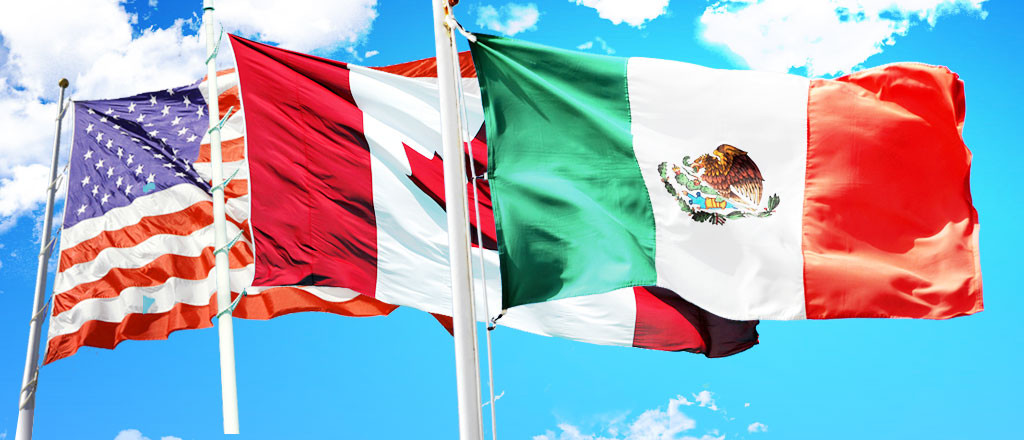President should mend or end NAFTA, not tinker at the margins
In recent months, trade negotiators for the US, Mexico, and Canada have been considering an overhaul of the 1994 NAFTA trade agreement. Due to opposition from Canada and Mexico, as well as the failed free trade lobby, insufficient progress has been made. The Trump administration has signaled a willingness to consider a set of revisions dubbed a “skinny” NAFTA. The Coalition for a Prosperous America (CPA) firmly opposes this approach as wrongheaded and substantially lessening America’s negotiating leverage.
“We’ve lost millions of good-paying manufacturing jobs over the past 20 years,” said Dan DiMicco, Chairman of CPA. “NAFTA was the first step on a free-trade road that has led to a declining middle class. The president campaigned on saving factory jobs and ending poorly conceived trade deals. If he wants to honor his pledge to the American people, he should consider walking away from NAFTA rather than continue it with a few minor edits.”
DiMicco added, “Instead of propping up NAFTA, the president and his team should take a wider approach to trade, and start addressing problems like foreign subsidies and an overvalued dollar—both of which hurt the competitiveness of US exports.”
A “skinny” NAFTA would wrongly avoid important issues such as reform of investor-state dispute resolution, rules of origin, sunsetting, country of origin labeling and cross-border trucking.
Michael Stumo, CEO of the CPA, said, “NAFTA has been a dismal failure for American producers. We support either fully mending the trade deal or ending it. If Mexico and Canada won’t budge on their positions, the president should simply terminate the agreement.”
Stumo notes that the US possesses considerable leverage with Mexico and Canada as a key market for their exports, leverage that would be squandered with a “skinny” NAFTA deal. America’s trade deficit increased after NAFTA implementation as to both countries. For example, in 1993, the year prior to NAFTA implementation, the US had a trade surplus with Mexico. Last year we had a $71 billion trade deficit in goods.
“Trade deals like NAFTA have naively focused on tariff reductions while failing to address many other causes of America’s large and growing trade deficits,” said Stumo. “The US runs deficits in autos, auto parts, machinery, and electronics. Our agricultural sector suffers under large trade deficits in cattle, beef, fruit, and nuts. NAFTA has been a losing proposition and the president should end it rather than tinker at the margins which is essentially continuing the status quo.”
CPA believes that NAFTA and other free trade deals have avoided the core issues of US trade performance and simply not helped the US economy.













